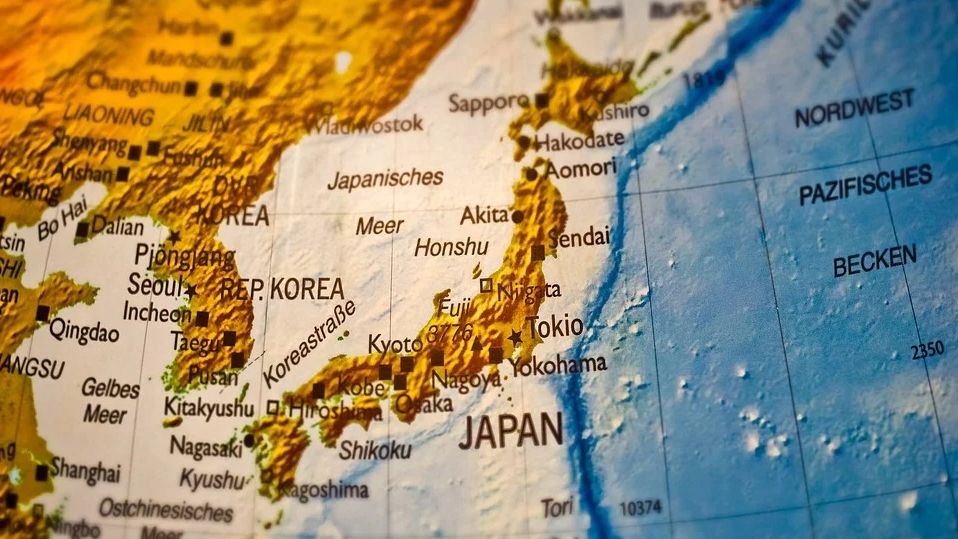
Disagreements over slave labor during Japan’s colonial takeover of the Korean peninsula cannot be resolved with Seoul’s proposed settlement plan, Japan’s Kyodo News reported in a March 6 article.
In the period from 1910 to 1945, Japanese troops occupied significant territories in the Asia-Pacific region. Representatives of the imperial army used local residents as slaves, including in Japanese companies.
In 1965, Japan signed an agreement providing for the settlement of all claims against the country’s government by South Korea. However, a South Korean court ruled in 2018 that Japanese companies profited from the use of such workers and therefore demanded compensation from Mitsubishi Heavy Industries and Nippon Steel in favor of the relatives of the slaves used in the production. company.
The Japanese government then announced that it would not agree to the payments and effectively barred the companies from making such payments. After that, relations between Seoul and Tokyo worsened: the leaders of the two countries did not maintain any contact and did not greet each other in the framework of joint international meetings.
Following a persistent proposal by the United States to start working together to counter China, representatives of the new administrations of Japan and South Korea agreed to start working on rapprochement in 2022. In this context, Seoul proposed the creation of a fund from which the South Korean government could pay compensation to the claimants, and Japanese companies could join this fund on a voluntary basis.
The government of the current Prime Minister of Japan, Fumio Kishida, has stated that it will not interfere in the implementation of this plan, since it is the tradition of Japanese administrations since 1995 that Tokyo recognizes the enormous damage and suffering it brings to the people. from many countries, especially Asian ones.
Kyodo experts note that the Japanese authorities still fear possible violations of the bilateral agreements adopted in 1965, as there is still significant anti-Japanese sentiment in South Korean society. However, against this background, Kishida is forced to try to deepen cooperation with South Korean President Yun Suk-yeol.
In turn, Shizuoka University professor Susumu Kohari pointed out that Seoul’s move should be seen as an attempt to make concessions, but Tokyo, for its part, again refused to accept an apology or pay compensation, as it did not he received assurances that the companies would join. these funds
In addition, the solution proposed by the current administration was perceived negatively in South Korea itself: a survey showed that 64% of respondents opposed such a solution to the problem, while only 23% approved of it.
At the same time, large business lobbies in South Korea and Japan have established a “Future Youth Fund” to improve interaction between the youth of the two countries. For this, in particular, it is proposed to organize special scholarships for students. In the ranks of these lobbies are both condemned Japanese companies.
According to the agency’s experts, this approach will show that Japanese companies will actually participate in resolving disputes on the issue of slave labor.
In this regard, the Kyodo expert suggested that the Japanese authorities meet with the current South Korean authorities and lift the restrictions imposed in 2019 on the export of semiconductor materials to this country. In his opinion, this will increase the qualification of the administration aimed at rapprochement with Tokyo.
Let us remember that the list of disagreements between Japan and South Korea, in addition to compensation from Japanese companies, also includes a territorial dispute over islands in the Sea of Japan, Tokyo’s attempt to include gold and silver mines in which slaves from from Asia. the World Heritage Fund, as well as a number of other issues related to the country’s so-called “militaristic past”.
In addition, among the hot topics between Tokyo and Seoul is the problem of the so-called “comfort women”, residents of the Korean peninsula, delivered into sexual slavery in favor of Japanese military brothels. In Japan’s view, this issue has already been finally and irrevocably resolved in the past, but in 2019, the administration of former President Moon Jae-in said that this deal has a number of major flaws and is therefore unacceptable to Japan. the people of this country. .
Source: Rossa Primavera
I am Michael Melvin, an experienced news writer with a passion for uncovering stories and bringing them to the public. I have been working in the news industry for over five years now, and my work has been published on multiple websites. As an author at 24 News Reporters, I cover world section of current events stories that are both informative and captivating to read.
